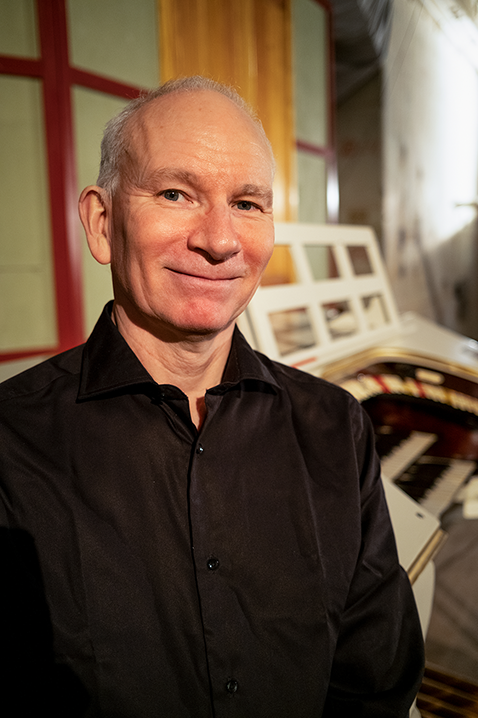Interview with Leif Handberg
Leif Handberg is an Associate Professor and Director of the experimental stage, the KTH Reactor Hall. For the first time ever, KTH plans to stage an opera in this location with the première in December 2022.
Why stage an opera?
“We wanted to honour our first Nobel Prize winner Hannes Alfvén, who wrote the book “The Tale of the Great Computing Machine” on which the opera is based, in 1966.
The project was initially planned for 2020, to mark the 50th Anniversary of Alfvén’s Nobel Prize. But it was postponed due to Covid-19. We are now aiming to open in December 2022 instead.
What is the production about?
“The opera is based on the book “The Tale of the Great Computing Machine” that addresses the relationship between humans and computers, which was unique for its time. Alfvén envisaged many of the developments we have since seen, and are right in the middle of now. So the production concerns something that is a very significant subject for KTH.
Who is behind the project?
“KTH is behind the project and we have commissioned Carl and Åsa Unander-Scharin as artistic directors. We had been talking about staging our own opera for a long time. When I learned that there had been plans to make an opera of The Tale of the Great Computing Machine as far back as 1968, but that they were never realised when the composer Karl-Birger Blomdahl passed away, I suggested to Carl and Åsa that we should take up the mantle again. To ensure it would be as good as we could possibly make it, KTH sought the help of Vadstena-Akademien to produce the opera.
Why is it being staged in the Reactor Hall?
“Staging our own opera in the Reactor Hall has long been on our wish list. It is an exciting and unique environment with fantastic acoustics that are ideally suited for this type of event. Even though the reactor itself was dismantled many years ago, the location still has an aura of research and experimentation. The Reactor Hall is also home to the Wurlitzer organ that accompanied silent films in the Skandia Cinema. The only thing that has been replaced since then is the control system, which is now digital, and which means you can now play the organ in new ways without touching the keys on the keyboard. Something the audience will see more of in the opera.
Who is the production aimed at?
“A broad audience. Partly to opera lovers in the general public, perhaps anyone who loves innovative new opera rather than purely the old classics. But also everyone who is curious as to how KTH can tackle something like this, where the focus is on the interplay between humans and technology. There are also people who are interested in the Reactor Hall as a location as it is such a unique space and stage. I hope opera as an art form will be a new and exciting experience for them.”
Why is KTH seeking contributions for the project?
Staging an opera is not exactly part of KTH’s core activities, so we quite simply need a bit of help in realising this entire production and to create a sense of engagement.

